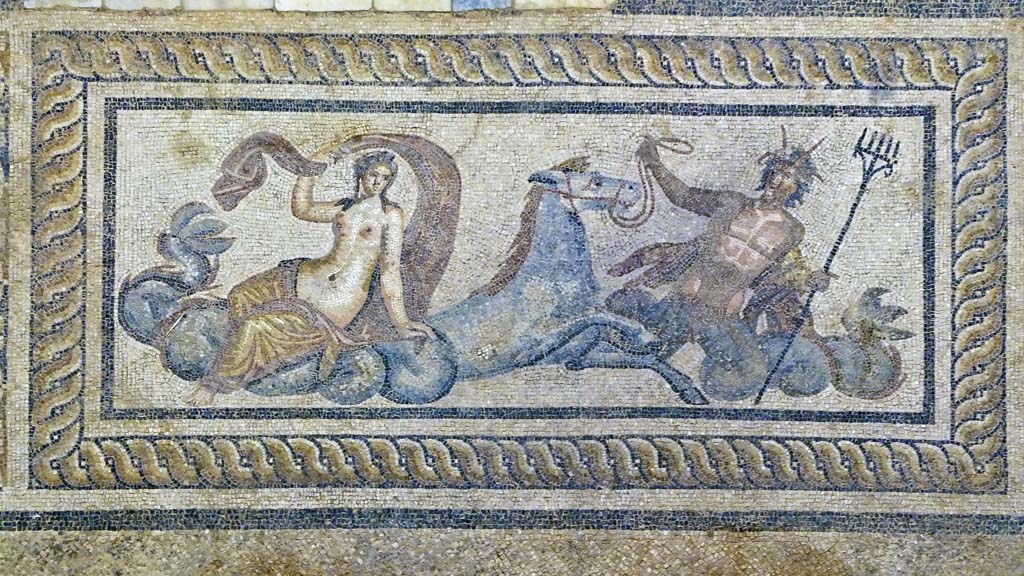
I’ve toured the fascinating ruins of ancient Ephesus many times on visits that have spanned more than two decades, and each time I’ve been amazed by how many discoveries are still being made regularly.
In fact, less than half of the city that eventually became buried after being abandoned nearly 2,000 years ago has actually been uncovered and cataloged. But the work is continuing.
A treat for passengers on my recent voyage on Celebrity Beyond was that we could sign up for small-group tours of the most newly opened discovery: the terrace houses near the famous Library of Ephesus. This was the grandest of grand residential areas in the days before a giant earthquake shook things so badly that many houses became piles of broken stone. The land underneath the city was heaved up so much by that quake that it literally turned the port into a landlocked city.
The structure of the terraace homes is becoming clear–Photograph by Wallace Immen
I had the rare privilege of being among the first to visit the dig of the terrace houses when the site was first opened to the public in 2007. We arrived in Kusadasi and got a preview of the terrace home arehaeological dig that at that time was mainly a construction zone with dozens of archeologists trying to fit together tiny shards of broken marble, decorated plaster and bits of mosaic that they were later able to restore to the floors and walls they had originally adorned.
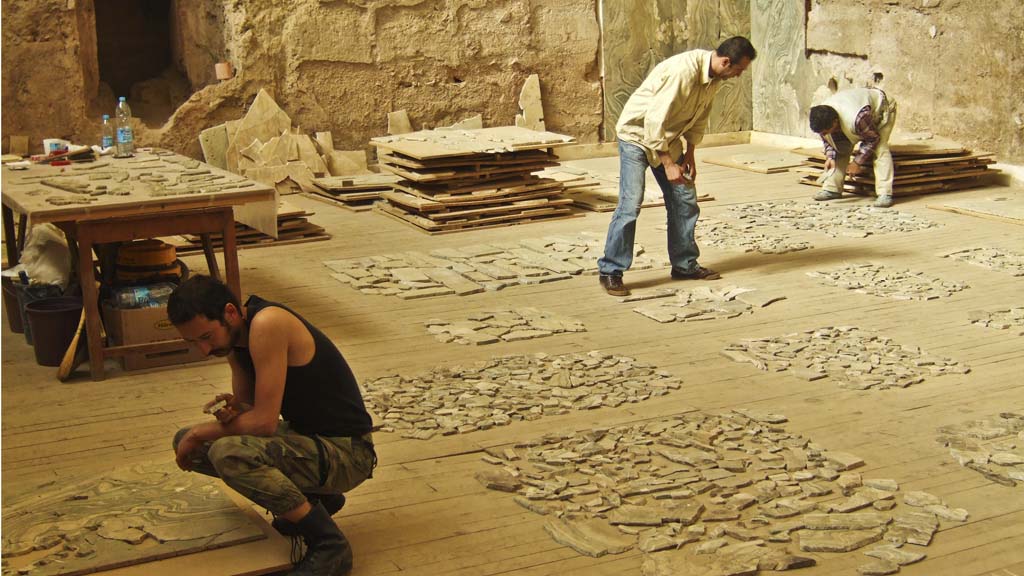
The researchers at the time joked that it was was the biggest jigsaw puzzle in the world, and it still is. But remarkably, my visit this summer, 15 years later, showed that they’ve managed to fit a remarkable number of the hundreds of thousands of puzzle pieces together and create a feel for how opulent life was in ancient Turkey.
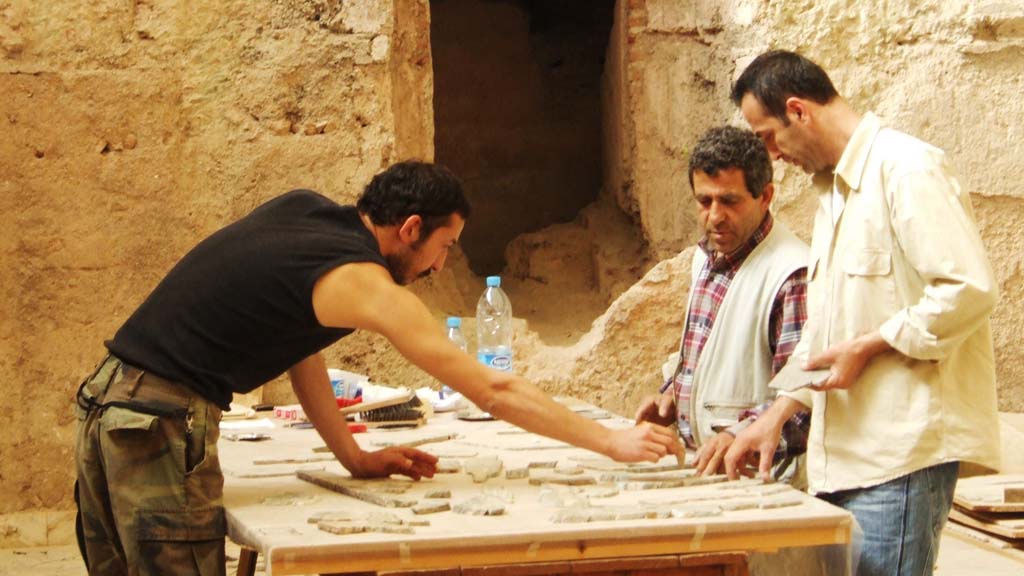
Normally I’m a little put off by shore expeditions that have to set off before 8 a.m., but today I was grateful to be heading out from Celebrity Beyond in the port of Kusadasi early, while it was still fairly cool. The forecast high for the day in this part of Turkey is 38 degrees Celsius, or 100 Fahrenheit.
Our guide got us to the entrance of Ephesus just before the opening at 8 and gave us the tickets that included the extra admission to the terrace house site.

Trade and the fact that Ephesus was the location of the Temple of Artemis made it a major attraction and the capital of the region of Anatolia, he explained. But by the fourth century AD, the city was already in decline but Christianity had replaced goddess worship. Then came a massive earthquake and the area began to be covered with silt from the river that flooded much of the city.
Our visit to the terrace homes started out on a challenging climb on to catwalks above the archeological site. It was immediately clear to me that a lot of rebuilding has gone on since my previous look. Walls have been recreated, with frescoes and carefully pieced-together marble panels have been reinstalled. Bold and beautiful mosaics once again cover floors, including scenes of rampaging lions and fierce warriors.
People who lived here were administrators, and they could afford to turn their homes into elegant showplaces, the guide says. It’s clear to see that far from being mud brick shelters, these were extremely comfortable places to live, with grand entryways and high-ceilinged rooms decorated with colorful frescoes. They even had a form of indoor plumbing.
We can get a bird’s eye view thanks to the huge structure built over the dig that was financed by an international consortium of donors and institutions whose experts have come here to study and help continue the restoration of the site. Work is also continuing to piece together the walls and structures in the district around the Library of Celsus.
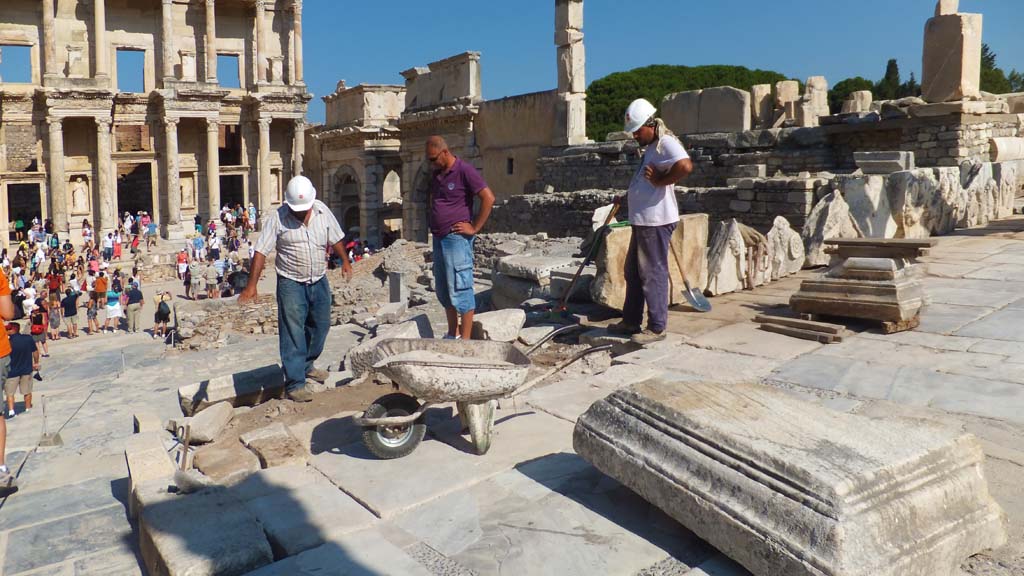
But as dramatic as the facade of the library may be, I found the tour inside the extensive terrace home complex much more telling of the advanced culture that Ephesians had at a time when most people think that life was nasty, brutish and short.
If you get a chance to visit Ephesus again, make sure you get on a tour that includes the terrace homes.
There are a lot of pieces still to be put together–Photograph by Wallace Immen

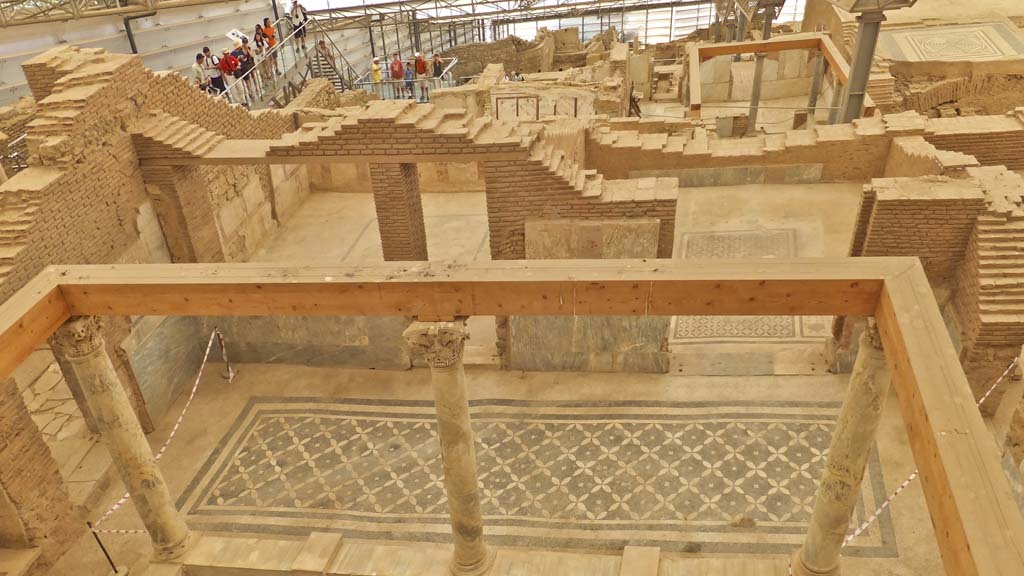
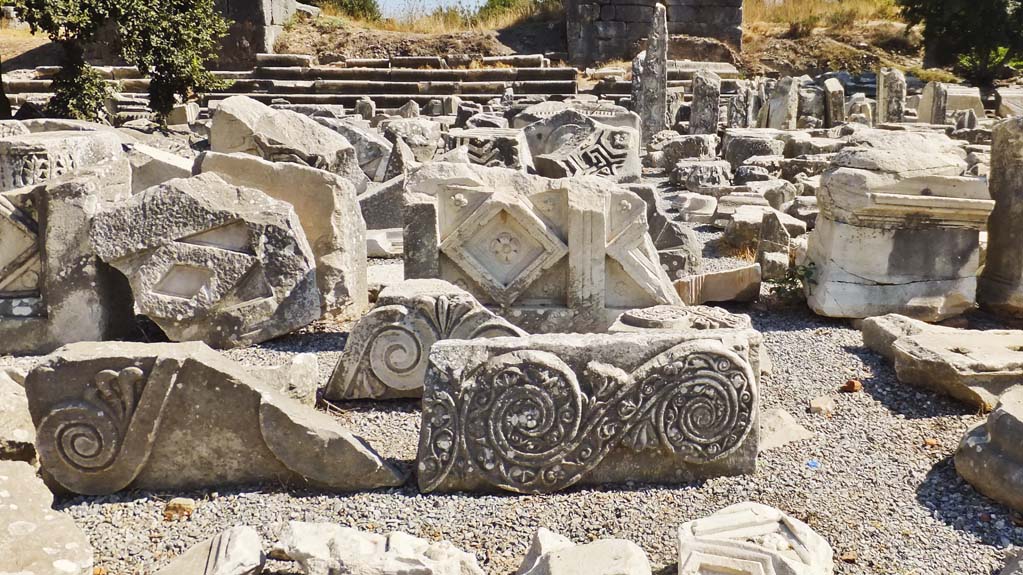
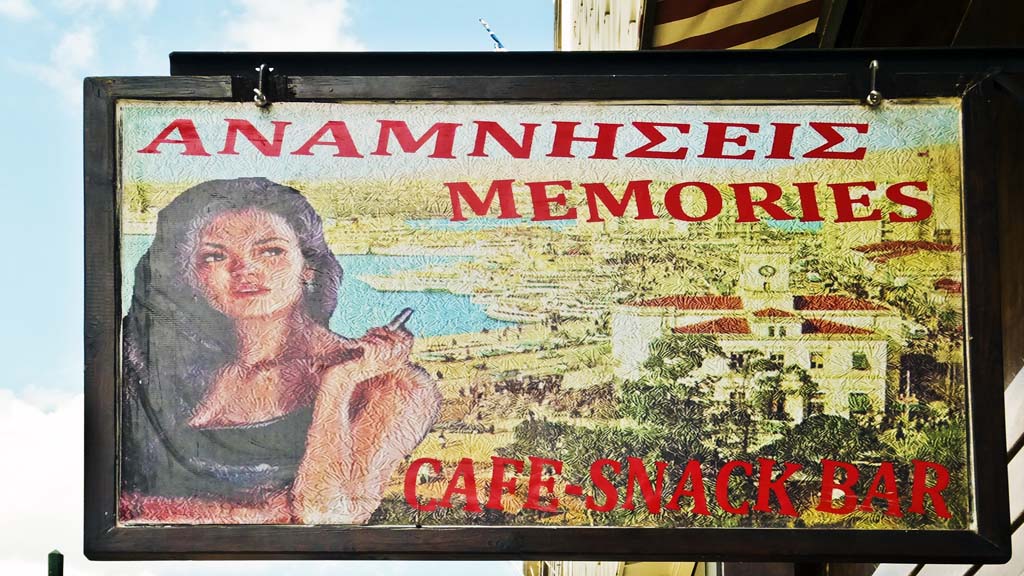
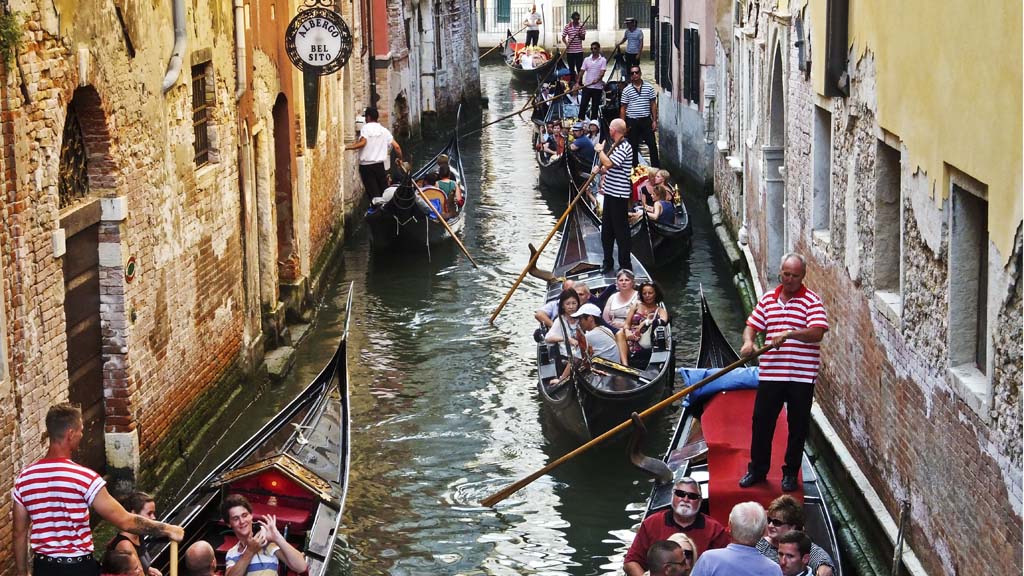
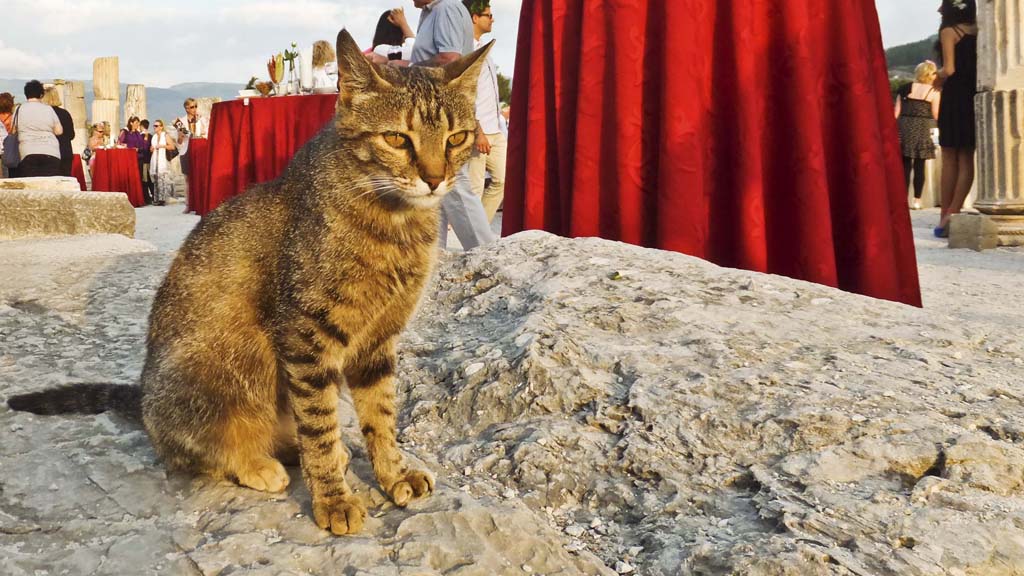
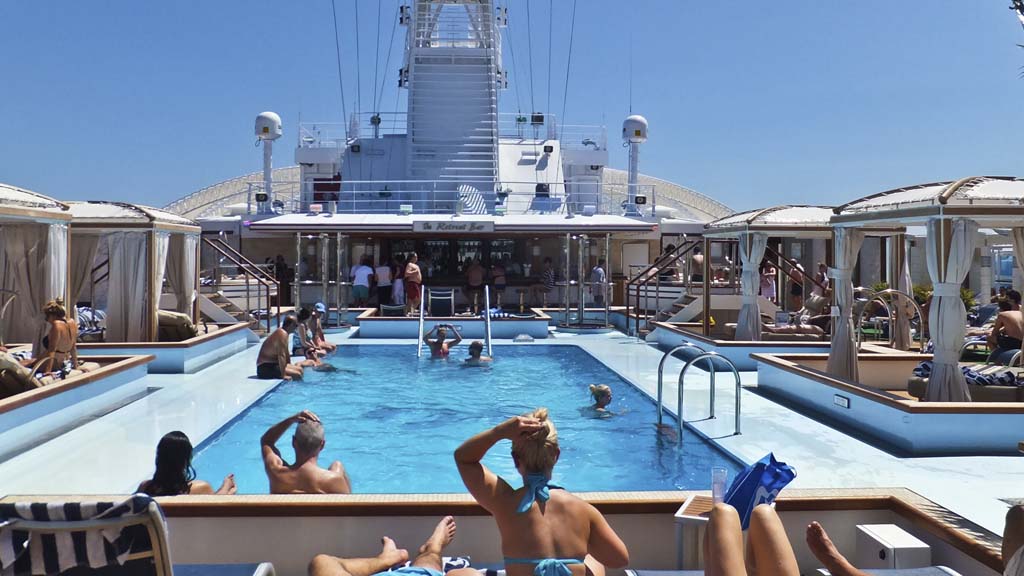




1 Trackback / Pingback
Comments are closed.